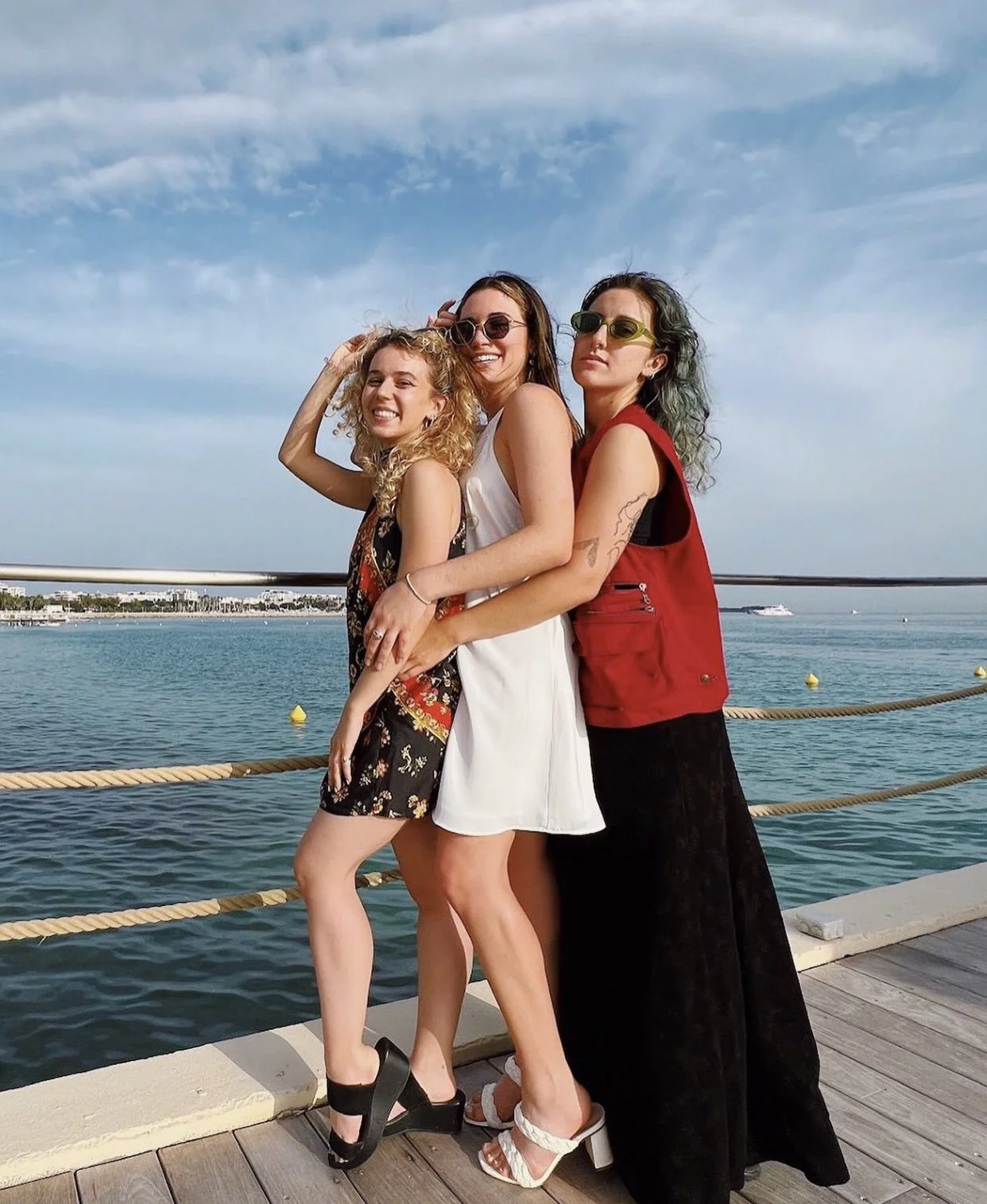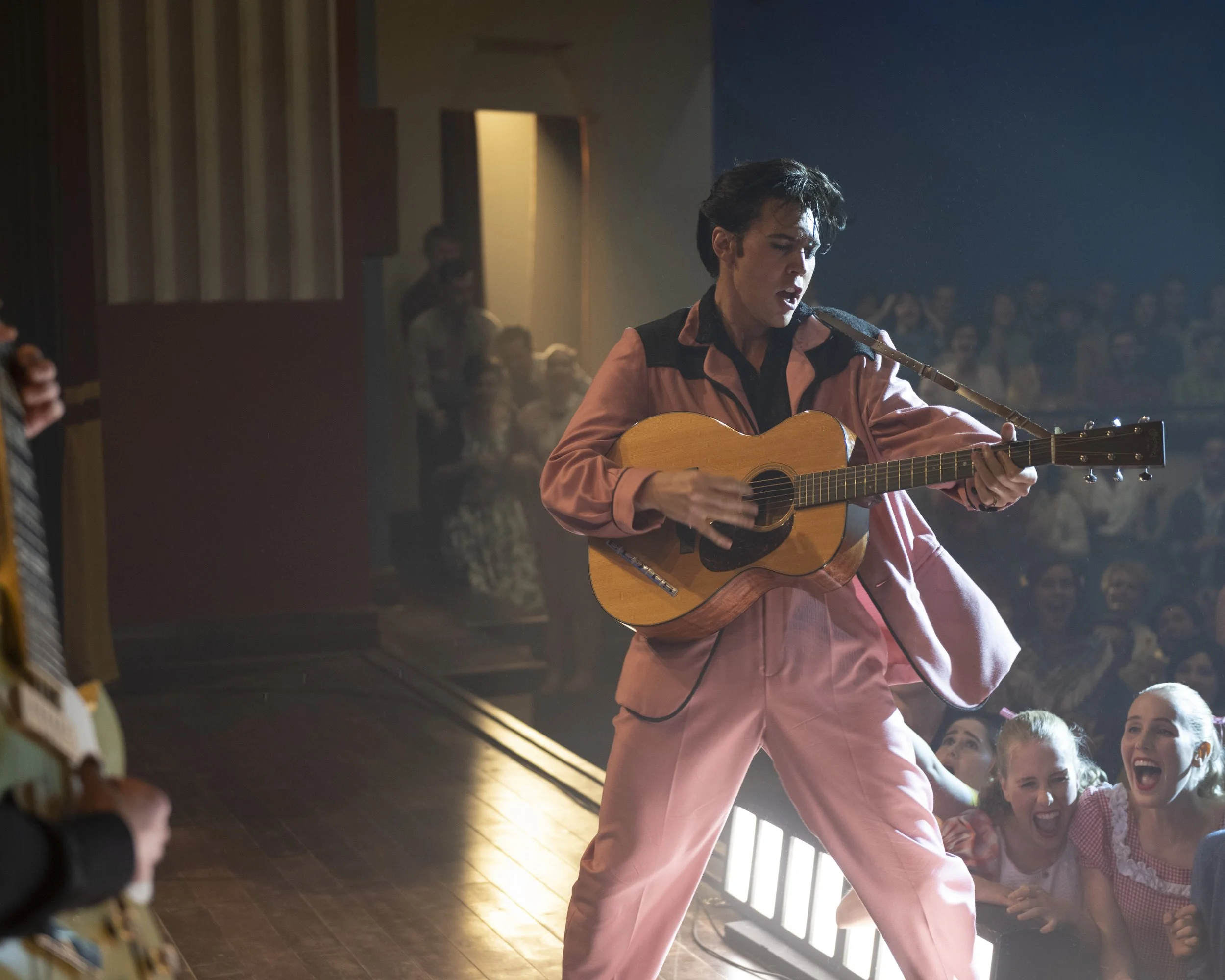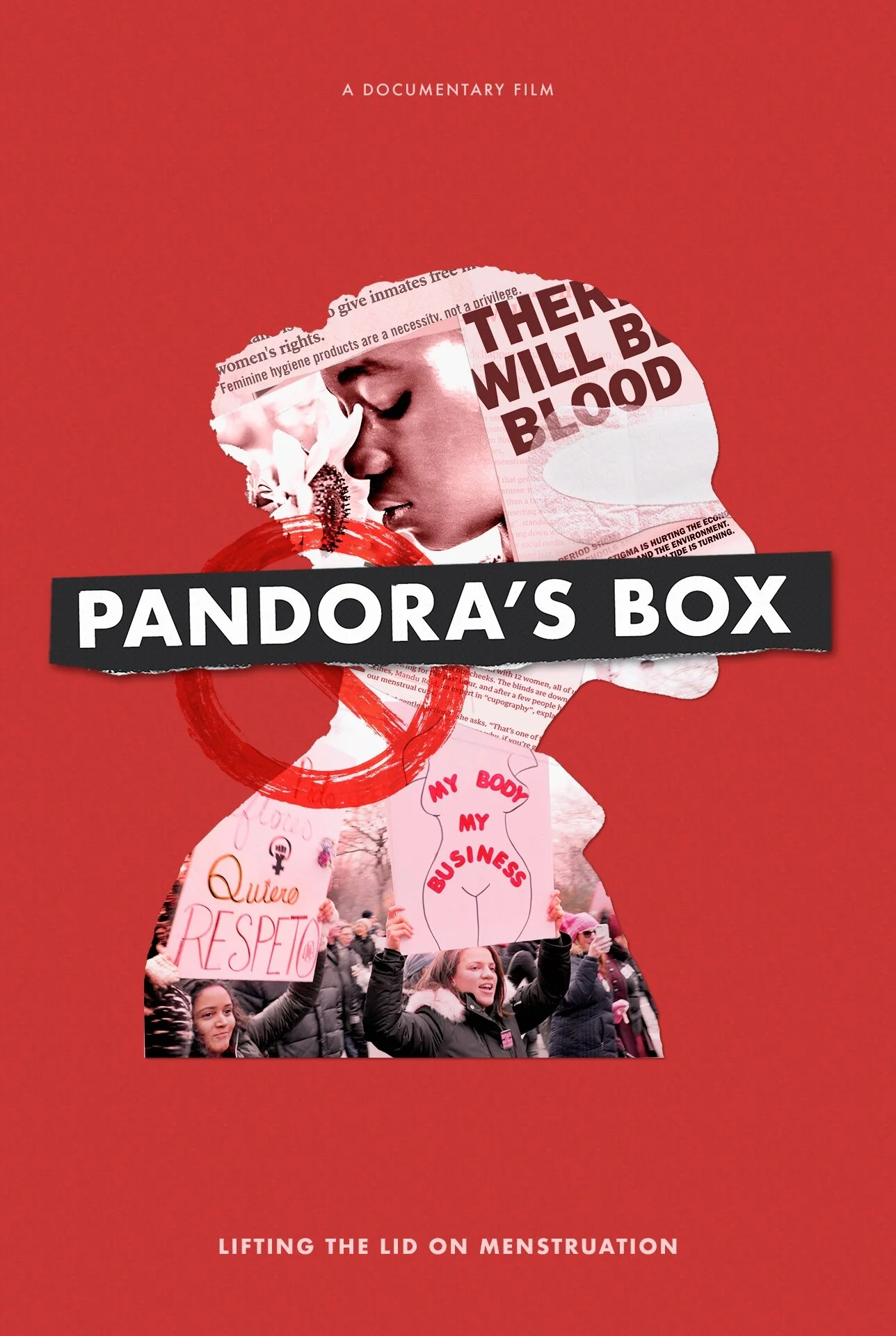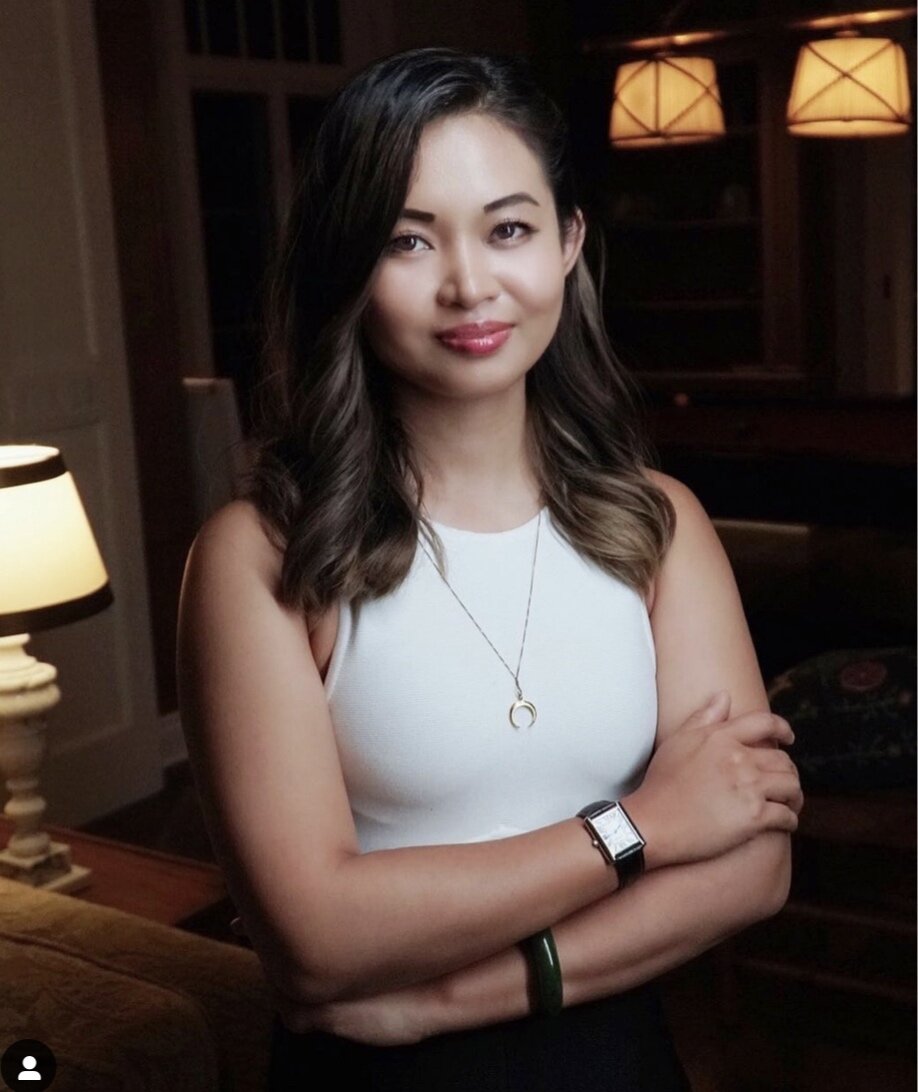Meet the Women Behind the Screenplay-award winning UNDECIDED
L: Introductions: how did the three of you come together to work on UNDECIDED?
Annabella: I’ve been acting for around 10 years now, and I’m producing UNDECIDED. This is my second short film behind the camera. As an actor, my job usually ends when the camera stops rolling, but being on the other side and understanding the filmmaking and writing processes has been amazing.
Sofia: I’m Sofia Kunz, director of UNDECIDED. Acting is where this all started for me – Bella and I met in our junior year in college, worked on our first short film together— KALEIDOSCOPE— and since then have been expanding our creative relationship, creating opportunities for underground stories to be told.
Francesca: This is the first film I’ve worked on. Bella first brought this project to me at Cannes in 2021 - I was there to support her with her short film, which was in Cannes’ Court Métrage short film programme. The passion with which people spoke about film at the festival really inspired me. I was just getting into writing at the time, but hadn’t thought about film as a medium for myself. So Bella brings me this [Ernest] Hemingway story, Hills Like White Elephants, and says “I want this to be made, but I don’t want to write it myself. Would you do it?” I said sure! The greatest part of this process is how fun it has been. There’s no pressure – we’re all taking our stab at producing, writing, directing, and it’s such a supportive relationship.
L: Annabella - what about Hemingway’s Hills Like White Elephants resonated with you?
A: It’s a man and a woman at a train station, discussing an operation. People who have read it over the years have speculated that they could be discussing many kinds of operations; when I read it, it was immediately clear to me that they were discussing abortion. What shocked me was that in the 95 years since Hills Like White Elephants was written, the conversation has not changed. It was taboo then, and remains largely taboo today: this shows that something is deeply wrong with the way society thinks about abortion.
F: I was able to fill in the blanks that Hemingway left, but ours is ultimately a completely different story. It takes place in modern day; we’re still deciding when specifically, given what’s happening in the States right now. We want UNDECIDED to emphasise the conversation that takes place before the law even comes into play in a pregnant person’s deliberations. When this conversation comes up in cultural discourse, it’s largely a political discussion, removed from the realm of the personal. Mainstream representations of abortion overwhelmingly focus on characters who have decided to have an abortion, and how their decision plays out. But the decision itself is such an intricate and complex conversation, which is what we hope to highlight.
A: Adopting a writing style reflective of the one that Hemingway uses, called iceberg theory—where the reader is given a little, and allowed to create the rest for themselves—was important to us, and Francesca has created an incredible script that pulls Hemingway’s story into three different narratives.
S: There is such ambiguity in the script. Like Hemingway’s, the characters never overtly reveal what their conversations are about, which is so novel. Creating that perspective speaks volumes about how Francesca has been able to form these characters. We’re trying to show that this issue is so much bigger than a single, often highly politicised, decision. When you politicise the issue, you dehumanise it, and this script humanises stories that haven’t really been told before. Of the characters, Mickey is nonbinary; Chet is transgender; we have a sixteen year old in Texas, and also an inter-abled couple. These stories aren’t often seen in the media, much less altogether in one story.
L: The notion of depoliticizing the issue is a prescient one in light of the polarising reproductive politics currently pushing forward in the US. Prioritising the human element in this story, and shifting focus away from the decision/outcome, seems very intuitive.
A: We’re trying to emphasise that this conversation is difficult enough, without politics entering into it–
F: -and it’s nobody’s business what decision any other person makes. That’s the whole point.
S: Abortion is often framed so reductively in this problem/ solution binary in the media. We see the pregnant individual, and then their journey fast-forwards to either their abortion – they’re already in the clinic - or in the delivery room. There’s no space for the conversation that happens in between, and that’s the hardest part, when you don't know how to move forward and you can’t go back. What do you do? How do you communicate, and who with? This is the space and time we’re dialling into.
A: This conversation is happening everyday. At weddings, at grocery stores, at the park-
L: -at train stations…
A: -right! This is one of the most human experiences possible. Hemingway was writing this story nearly a century ago, and we’re still discussing abortion this way.
L: The film’s focus on a pregnant person’s navigation of this issue calls to mind the recent progression of anti-abortion legislation in the United States, some of which looks set to criminalize conversations about abortion specifically—with friends, GPs, colleagues—on the grounds that these discussions can be construed as amounting to influencing or assisting someone in accessing abortion.
F: When the Supreme Court overturned Roe v Wade, I just thought, I am so sick of speaking into a void – of feeling like these issues are just bouncing off of each other with no resolution. UNDECIDED is an example of how we, as artists, deal with these blows. We’re not politicians, we’re not educators, but this is how we can help - we make art and hope that it speaks to someone. And when somebody says that a character spoke to them in a way they didn’t know was possible, that’s what this is all about. Hopefully UNDECIDED will speak to people who will see the story and feel something like empathy.
S: In moments like these—when Roe was overturned—you feel so hopeless, like, what am I doing this for? Wondering how your art is going to support people through these issues. But it’s about making others feel seen and connected, and letting them know we’re there with them. We see you. It’s really beautiful when you think about it in that communal sense.
F: Hope is such an integral element in activist art - showing positive, human stories, real people’s joy, and resisting focusing on suffering or persecution. We need to show joy, to show hope – and UNDECIDED is a mixture of both. It explores the challenges, but also the perseverance, these people persevering.
S: As humans, we need to know how to work through things together. The conversations taking place in UNDECIDED are about individuals understanding how they can help one another.
L: You speak so passionately about the need for people to work together; I’d love to hear about the collaborative filmmaking process that the three of you have undertaken with UNDECIDED. Where in the process are you at currently - how has it been, and how is it going?
A: Francesca started writing a week before the Texas abortion ban was announced last September. We were all in different time zones, checking in once a week, and we gave ourselves a hard deadline so that we could go out to screenplay competitions. We’re so grateful for the response the script has had - it won the Santa Barbara Film Festival screenplay competition; we won gold at Indie Shorts; we won Outstanding Achievement at the Independent Short Awards, and have been finalists in a few others. The minute Sofia and I saw the first draft, we were in tears; we knew this was going to be something, and it’s been incredible, for people to have connected with the script before we’re even started filming!
Since May, we’ve been really focused on funding. Crowdfunding, grants, sponsorship programs, exploring options with production companies willing to take the project under their production umbrella – we actually just met with a company with whom we think we’re very compatible. We’re also deep-diving into casting right now, which Francesca and Sofia are leading on, and we’ll shoot in September! From now until then it’s about cast, crew, funding, locations, publicity –all at the same time, all whilst we also have jobs and school.
F: We’re working our asses off, to be frank. It’s not easy, but we all care so much, have our own roles, and give each other room. We’re equally involved in decisions - we always find a way to get on the same page.
S: We’re very adamant about casting true to the characters. So for Chet, who’s transgender, we’re making sure to cast a trans actor. The same with Mickey and Jonah, a non-binary person and a disabled individual.
F: We know those actors are out there—we know they exist and are talented—so we’re focusing on making the right connections to find them and bring them in.
L: One of the biggest issues in the film industry is that the people making decisions are overwhelmingly affluent, cisgender white men. How has being an all-female or femme-identifying team impacted your telling the story? Is there something you’ve been surprised by throughout your experience, or that you’ve learned about yourselves and your filmmaking process?
F: At first, this was just a fun project with my friends, you know? But as soon as, for example, we started looking for funding, it quickly became clear to me that there are certain people with power in this industry; there are certain people with resources - and these people know it. And that can be leveraged to varying degrees, which I experienced a lot in Cannes - speaking to people about funding, and then people […] not necessarily taking advantage, but men would approach us and use the fact that they were in a position to give the film funding as an excuse to talk to us - without having any intention of investing in the film. Then post-festival, we followed up with these men and were met with silence-
A: -ESPECIALLY after Roe v. Wade. We reached out specifically at that time to say that the Supreme Court’s ruling had motivated us more than ever to make this film – and by these same men, we were ignored. The silence from men that we have experienced has been so telling. On the other hand, the women we’ve reached out to, even if they can’t support monetarily, have been there for us in other ways. This contrast is huge - the contrast with men with financial resources, who have been silent when given the opportunity to put their money where their mouth is.
S: We have this collective mindset of ‘we don’t care if you support us or not, we’re going to make this film.’
A: Like – we had a film at Cannes last year! Which, amongst the men we talked to at Cannes, was rarely the case. The difference in how we’ve had to prove ourselves to men versus women has been insane. The steps we have to take to bring ourselves to the level of where these men perceive themselves to be is honestly exhausting.
F: Men just seem to be more willing to listen to the ideas of, well, other men. I wonder whether three men wanting to make a film about abortion would be seen as revolutionary… but because we’re women, we need not only the idea but a great script, good crew, our deck has to be impeccable – it all has to line up.
A: We have to make sure that we’re taken seriously. When men initially talk to us, it’s not because they have any idea that we’re involved in film at all – it’s because they want to talk to three pretty people, who seem charming.
F: We’re so excited to be part of a movement in this industry that is shifting towards more inclusivity and less male domination, in general.
S: Our DP is also female. Collectively we see things through a different lens, and the three of us working so openly together allows us a level of understanding that I think would be vastly different if we’d started with a male on the team. Now, if we do bring a guy on, we’re confident enough in ourselves not to capitulate to any undue influence. The three of us have decided that under no circumstances will we give up our creative freedom: what we say is what will go, eventually, even if there’s money involved.
L: This conviction is what we need - the more women we get working in film, the more chance there is for these kinds of partnerships, and women and LGBTQIA+ people not being the token or minority in a writing room or on set. I hope endeavours like yours will encourage more women and people who identify as gender and racial minorities to see themselves in this industry, and realise there is a place for them – once you find your people, that’s all it takes.
S: It’s a ripple effect. Women are too often pitted against one another, which can present barriers to working together and supporting other women when those opportunities do arise – we want to challenge that. Because when one of us succeeds, we all do-
F: -and there’s plenty of room at the top! We want to bring each other up, and to do that for everyone who needs some support in this industry.
L: Absolutely. Fast-forwarding through filming and post-production, how do you see UNDECIDED out in the world - who do you hope will see it, and what responses do you hope the film will generate?
A: Our goal is to get this seen. If that means getting into film festivals, that’s what we’ll do. If that means getting to distribution, with HBO Max, Netflix, MUBI, any of these streaming platforms that are programming more shorts content, then that’s what we’ll aim for. We want UNDECIDED to be impactful, and to be a calling card for us to say that this is what we can do, and we didn’t compromise our integrity to get there.
S: We want people to feel for the characters, and see parts of themselves in these conversations. We’re advocating for empathy, and for giving people the heart to communicate.
F: We want to continue telling stories that too often go untold. Right now, though, our focus is getting UNDECIDED made for people to see. We don’t want to speak into a void anymore.
As a short film project currently in its development stages, UNDECIDED is scheduled to shoot its award-winning script on location in New York in September 2022.
Follow UNDECIDED on Instagram: @undecidedfilm
You can check on UNDECIDED’s funding progress via the UNDECIDED Seed and Spark fundraising page
This interview has been edited for length and clarity.






